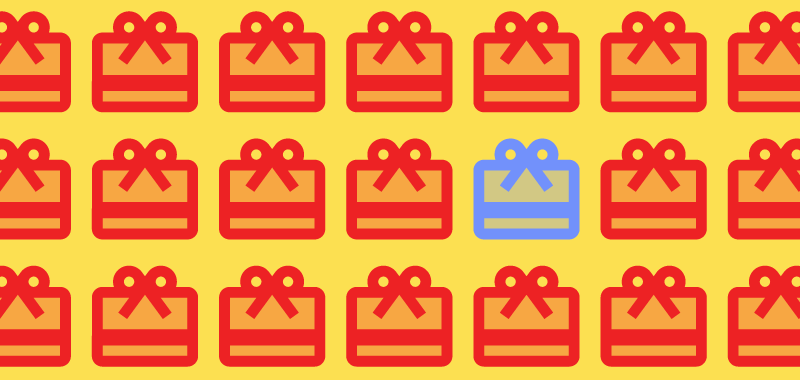
People love the idea of more choice. Or do they…
Brands will often assume that offering customers more information, more options, more choice will make the experience better – but empirical evidence contradicts this.
Research shows that most people have a harder time choosing from a large number of options.
People are almost plagued by a world of infinite possibilities, and this cognitive bias is known as choice overload.
What is Choice Overload?
Choice overload, or the paradox of choice, is the tendency for people to get overwhelmed when they are presented with a large number of options.
There is a widespread assumption that people love choice, and that more choice is good. This assumption is prevalent in many cultures, particularly those that have evolved to prize individual freedom and autonomy. And while freedom to choose is great, too much choice often makes it harder.
Less choice, more action
Iyenger and Lepper (2001) ran a study to understand how the volume of choice impacted consumer behaviour.[1]
The research team set up a display table inside a grocery store, offering shoppers free taster samples of gourmet jam. If shoppers tasted at least one jam, they were given a $1 discount voucher to use to purchase any jam.
In one setting, the display table had an extensive selection of 24 different varieties of gourmet jam. In another, the display table had a limited selection of six different varieties. The display tables would switch every few hours.
Iyenger and Lepper’s findings were striking. They found that when there was an extensive selection of jams, 60% of customers would stop to get a sample, and 3% of these customers would buy a jar. When there was a limited selection on display, only 40% of customers stopped. But surprisingly, 30% of these customers bought jam.
The experiment demonstrated that too many options caused consumers to be less likely to buy a product. Many options attract people, but fewer choices motivate a purchase.
To note, there was also no significant difference between the number of jams actually sampled between consumers who encountered 24 jams, and those that encountered six.
Perfecting the choice of rewards
Understanding the limitations of offering choice is something all brands and loyalty program operators should be wary of.
Some programs will offer members hundreds, if not thousands of reward options to redeem their well-earned program currency. The sheer volume of rewards can be appealing on face value, particularly when communicated as a defining element of a program.
However, the reality behind this façade of choice is the dilution of relevancy. For example, a program may boast 1000 rewards, but all redemption activity is concentrated on ten. Not only does this lead to inaccurate reporting, but also unnecessary operational bloat.
A seemingly infinite supply of options can also make people care less. That is, the effects of choice overload go beyond the decision-making process; it also impacts the emotional experience, decreasing overall satisfaction with choices made and increasing the propensity to regret that choice.
A brand is likely to find more success with a program that has a limited, curated list of value.
Choice is good, but too much choice will overwhelm.
[1] Iyengar, S. S., & Lepper, M. R. (2000). When choice is demotivating: Can one desire too much of a good thing? Journal of Personality and Social Psychology, 79(6), 300-322.

